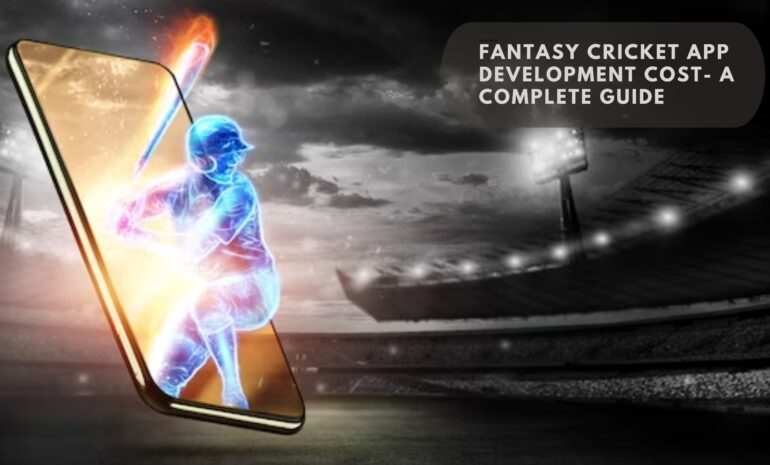The Intersection of Fantasy Sports and Social Media. In this blog post, you can explore how fantasy sports and social media have become meshed in today’s digital landscape. Discuss how social media platforms have played a vital role in the growth and popularity of fantasy sports by providing a space for fans to connect, share insights, and engage in friendly conflict. You can also delve into topics such as:
- Live Updates and Interaction:
- Community Building:
- Player Engagement:
- Content Creation:
- Contests and Challenges:
- Influence on Sports Fandom:
- Data and Analytics:
- Success Stories:
Social Media’s Impact on the Sports Industry:
Social Media has affected every industry and hasn’t left the sports industry intact. The focus on Social Media in the Internet Marketing and Search Engine Optimization (SEO) industry has been growing in recent years. Social media is incorporated into our social culture. Social Media platforms like Twitter and Facebook have helped Professional teams and athletes bridge the gap between fans and themselves.
What is Fantasy Sport?
Fantasy sports are online games where players create virtual teams made up of real-life athletes from a particular sport, and they compete based on the statistical performance of those athletes in actual games. These virtual teams are often referred to as “fantasy teams,” and participants in fantasy sports are known as “managers” or “owners.”
Here’s how fantasy sports typically work:
- Drafting: Participants participate in a current event at the beginning of a fantasy sports season. During the draft, they select real-life athletes from the sport of their preference to build their fantasy team. Each participant takes turns choosing athletes; once one manager picks a player, another cannot determine them.
- Scoring: Throughout the season, the fantasy teams earn points based on the statistical performance of the athletes on their roster during real-life games. Different fantasy sports and platforms have various scoring systems. Still, issues are usually granted for scoring goals, making assists, getting hits, or achieving other statistics relevant to the sport.
- Competing: Fantasy sports are typically played in leagues with a group of participants. These leagues can be composed of friends, co-workers, or even strangers on online platforms. Fantasy team owners compete against each other, and their teams’ version is ranked based on the total points earned by their selected athletes.
- Managing: In-season, managers can make modifications to their fantasy teams. They can trade players, add or drop athletes, and adjust their lineups to maximize their chances of success. This strategic aspect adds an extra layer of attention to the game.
- Winning and Prizes: At the end of the season or a fixed period, the manager or team with the most collected points in the league is announced as the winner. Some fantasy sports leagues offer prizes, while others are for fun and bragging rights.
Popular fantasy sports game development include fantasy football, fantasy basketball, fantasy baseball, fantasy soccer, and more. Fantasy sports have gained immense popularity, with millions of participants worldwide. They offer fans a unique way to entertain with their favorite’s sports, test their sports knowledge, and compete with friends or fellow devotees while following real-life games with added excitement. Fantasy sports also seriously impact sports fandom, as they can make fans more supported in a wide range of teams and players across different leagues.
The Role of Social Media in Fantasy Sports
In recent years, social media has become an essential tool for fantasy sports enthusiasts, revolutionizing how they play, engage with fellow managers, and staying knowledgeable about their fantasy teams. The convergence of social media and fantasy sports has created a dynamic ecosystem that improves the overall experience in several ways:
- Community Building: Highlight how social media platforms like Facebook Groups, Reddit communities, and dedicated fantasy sports forums have allowed enthusiasts to form communities where they can share insights, strategies, and experiences.
- Player Analysis and News Updates: Explain how fantasy sports players depend on social media for real-time player injuries, trades, and game performance updates. Discuss the role of Twitter and sports news websites in providing necessary information.
- Expert Insights: Explore how fantasy sports experts and judges leverage social media to share advice, player rankings, and expert opinions, helping players make informed decisions.
- Live Interaction: Discuss how social media enables live interaction during games. Players can engage in garbage talk, discuss player performance, and celebrate or commiserate with others in real-time.
- Contests and Challenges: Highlight how fantasy sports platforms use social media to run games, challenges, and giveaways, engaging their user base and improving brand visibility.
- Promotion and Awareness: Explain how social media helps promote fantasy sports leagues and platforms. Share examples of thriving marketing campaigns using social media to attract new players.
- Behind-the-Scenes Content: Discuss how fantasy sports platforms and players use social media to share behind-the-scenes content, such as locker room tours, practice sessions, and player interviews.
Also Read: Top 10 Most Famous Mobile Games in the World in 2023-24
- Influencer Partnerships: Explore how social media influencers and sports celebrities collaborate with fantasy sports media to promote their services and engage a wider audience.
- User-Generated Content: Emphasize the role of user-generated content on social media, including memes, fantasy team names, and weekly matchup banter.
- Feedback and Support: Explain how social media serves as a channel for users to provide feedback, seek assistance, and report issues to fantasy sports platforms.
- Emerging Trends: Discuss emerging trends in the convergence of social media and fantasy sports, such as interactive live streams, social media-exclusive contests, and virtual reality experiences.
Fantasy Sports Development Companies
Over the years, countless companies have appointed structured platforms for fantasy sports enthusiasts, introducing the idea of fantasy drafts. Participants assemble their teams in these societies and compete to construct the most successful lineups. These companies acknowledged the worldwide reach of the internet, enabling players from diverse geographical locations to engage in competitive play.
Furthermore, several fantasy sports app development companies have incorporated a betting element, allowing participants to wager real money. While many still adhere to the classic Rotisserie scoring system, they now offer an array of gaming formats and have expanded the selection of sports in which people can form teams and engage in organized competitions.
Top Leading fantasy sports app and software development Company

To find the most appropriate company, you should consult with several game development companies, request proposals, and conduct interviews to ensure they understand your vision and can deliver the product you desire. Additionally, checking recent reviews and performing due diligence on the company’s reputation is essential. In that case, Youbets is, the prominent Fantasy Sports Development Company, offers a team of experienced mobile game app developers with vast experience creating white-label fantasy sports apps, web, and software development platforms according to their global clients.
Conclusion:
The Ongoing Journey of Leveraging Platforms for Growth
In the dynamic world of fantasy sports, social media integration has proven to be a game-changer. It has connected fans worldwide and changed how we experience and engage with our favorites’ sports. The journey of leveraging social media platforms for growth in fantasy sports is far from over; it’s an ever-evolving experience with exciting possibilities on the horizon.
As social media platforms evolve and new technologies arise, the relationship between fantasy sports and social media will only heighten. We can expect more innovative campaigns, improved fan experiences, and a broader reach into previously untapped markets. Social media’s real-time updates, fan communities, and direct athlete interactions will remain essential to the fantasy sports landscape.
In this ever-evolving landscape, companies and enthusiasts must remain adaptable and forward-thinking. So, as we look ahead, remember that leveraging platforms for growth in fantasy sports is a thrilling and constant experience that promises even greater excitement and opportunities in the years to come.


